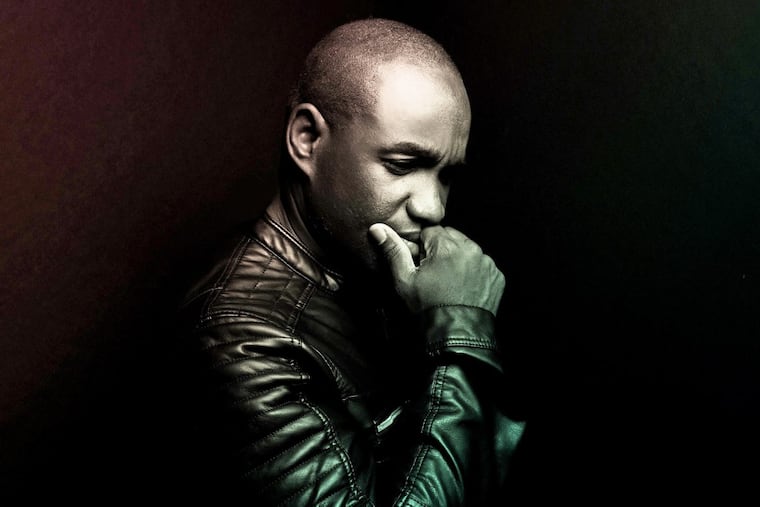Lawrence Brownlee's 'Cycles of My Being': 'Hold on to your seats'
On Tuesday, the star tenor and Opera Philadelphia artistic advisor world-premieres a song cycle meant to evoke the black male experience in America right now.

The poet who wrote the words can be confrontational. The composer is known for cutting-edge jazz. The singer specializes in ornately written operas from another century. Suffice it to say that Cycles of My Being, a new song cycle by poet Terrance Hayes and composer Tyshawn Sorey — prompted by police brutality against African Americans — won't be anything typical. Or demure.
The project is in sympathy with the Black Lives Matter movement, but independent of it, and was hatched by tenor Brownlee, 45, who is keen to use his celebrated voice to further social causes. He gives annual concerts for Autism Speaks (his son Caleb is autistic) and here wanted to create something that explores the inner life of African American men.
Urban police brutality is only part of the motivation. Brownlee is an A-list tenor and is considered indispensable to operas such as I Puritani (which he's currently singing at Lyric Opera of Chicago), but that doesn't give him any immunity when "driving while black," for instance.
Anger rises in his voice when he talks about a recent incident in Los Angeles when he pulled his rental car partly into a crosswalk to make way for a passing ambulance. A police officer approached his car, yelling. "I kept my hands at 10 o'clock and 2 o'clock on the steering wheel," Brownlee recalls. "Had I said anything he didn't like, the officer could've searched my car. I said, 'Yes, sir.' I wouldn't take the bait. I wouldn't enter his game. But it could easily have gotten out hand."
Born in Youngstown, Ohio, Brownlee developed his talent at Indiana University, made his operatic debut in 2002, and has since sung in most of the world's great opera houses. The lyrical serenades in Barber of Seville are among his specialties. Offstage, he is as amiable as opera tenors come. Yet in Cycles of My Being, he contributed one of the poems being set to music, titled "Hate." "Hate can be a judge's robe. It can be a uniform. Hate wears high heels. Hate is veiled in so many different ways," said Brownlee, "and it can decide my fate."
He sang Opera Philadelphia's 2015 world-premiere performances of the opera Charlie Parker's Yardbird, was made artistic adviser of the company in 2017, and found a ready partner there for his song cycle collaboration with poet Hayes and composer Sorey. Both artists are MacArthur Foundation fellows. Sorey has also collaborated with other classical artists, such as pianist Conrad Tao and soprano Julia Bullock.
Brownlee's first impulse was to target the piece for his Carnegie Hall recital on April 24. After Opera Philadelphia stepped in as the lead commissioner, what was meant to be a trio of performances — Philadelphia, Chicago, and New York — has come to include five more dates, including March 31 in San Francisco and May 1 in Kalamazoo, Mich. Carnegie Hall and Lyric Unlimited, a division of Lyric Opera of Chicago, are the co-commissioners of the piece.
Specifics on the cycle's content are scant approaching the Philadelphia premiere. Neither poet nor composer wanted any texts or scores circulated, and neither collaborator was available for interviews. Brownlee said two of the songs focus on hope, and not with the sort of misty optimism sometimes heard in pop music. "Hope solves many, many things. When walking, hope is swagger. When I'm weary, hope is a second wind," said Brownlee. "The importance of hope … I can't stress enough."
One doesn't often hear such discussions in the news reports about race and police brutality. And that, for Brownlee, is where art can speak beyond everyday anguish.
"These words can have so much meaning," he said. "In [Italian] opera, you can have one word that's sung over two pages … but I can use words, as a native speaker, in a way that people can say, 'I get it. I know what they're talking about.'